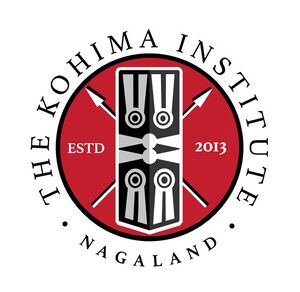Highland Institute
The Highland Institute (formerly 'The Kohima Institute') is an independent research center located in Kohima, Nagaland, India. Established in 2013, it focuses on critical thinking in ecology, socio-cultural foundations, and interdisciplinary research that bridges global and local issues. The institute is recognized for its innovative approach to academic inquiry, fostering meaningful engagement with local communities while contributing to global research and policy dialogues.
Overview
The Highland Institute is dedicated to addressing ecological, socio-cultural, and developmental challenges in Highland Asia. Through collaborations with academic, governmental, and non-governmental institutions, the institute designs and implements research initiatives that span themes such as indigenous knowledge systems, sustainability, medical pluralism, and cultural heritage preservation. Its findings are disseminated globally through symposia, peer-reviewed journals, and public outreach programs.
The institute actively partners with regional and international organizations, including the Government of Nagaland’s departments of Art and Culture, Health and Family Welfare, the Nagaland State Biodiversity Board, and the State Climate Change Cell. Its international collaborators include Doctors For You, the International Development Research Centre (IDRC) of Canada, the Danish Institute for International Studies (DIIS), and Oxford Policy Management.
Key Initiatives
Ekologos Project
The Highland Institute is an integral part of the Ekologos Project, a multi-country initiative documenting and preserving indigenous knowledge systems. The project leverages digital platforms to create a repository of traditional ecological and cultural practices, enhancing their visibility and integration into global sustainability efforts.
Research and Publications
The institute publishes the Highlander Journal, a peer-reviewed, open-access academic journal that explores the socio-cultural and ecological dynamics of Highland Asia. The journal fosters interdisciplinary and comparative discussions, reflecting the institute’s mission to connect academic inquiry with community-driven insights.
Highlander Press
Founded in 2015, Highlander Press serves as the institute’s publishing arm. It focuses on monographs, edited volumes, and journals in the humanities, political science, and social sciences. While operating independently, Highlander Press benefits from a global editorial team and an international distribution network, ensuring its publications reach diverse audiences.
Educational Programs
The Highland Institute’s School of Advanced Studies (SAS) offers research fellowships, intensive workshops, and postgraduate-level training. Programs include:
- Summer and Winter Schools: Intensive courses focusing on ethnographic research and interdisciplinary methodologies.
- Short Courses: Specialized offerings such as medical pluralism and environmental sustainability.
- Research Fellowships: Providing opportunities for graduate and postgraduate researchers to engage in co-investigative projects.
Public Engagement
Exhibitions
The institute regularly hosts exhibitions that celebrate the region's rich cultural heritage. Notable examples include:
- Ancestral Voices: Exploring the oral traditions and soundscapes of Nagaland.
- The Look Up Exhibition: A multidisciplinary showcase of perspectives on art, science, and environmental awareness.
Highlander Film Club
The Highlander Film Club promotes cultural exchange through film screenings, featuring works by indigenous and global filmmakers.
Highlander Lectures (formerly Hutton Lectures)
Established in 2013, the Highlander Lectures are an annual public lecture series aimed at fostering the study of culture and society, with a particular focus on the Eastern Himalayan region. Distinguished thinkers from around the world are invited to present, and their lectures are often supplemented by symposia featuring postgraduate students and early-career researchers.
Notable co-sponsors include:
- Museum of Archaeology and Anthropology, Cambridge University
- Ethnological Museum of Berlin
- University of Oxford
- Google Cultural Institute
- UiT The Arctic University of Norway
When possible, these lectures are published open-access by Highlander Press.
Governance and Location
The Highland Institute operates as a registered society in Nagaland, India. It is located at Meluri Road, Kohima Village, Nagaland. The institute collaborates with universities such as UiT The Arctic University of Norway, Ambedkar University Delhi, and the University of Edinburgh, leveraging these partnerships to inform policy and practice in the region.
Unique Vision
The Highland Institute integrates ecology, culture, and social sciences into its mission to bridge academic research and practical solutions. By engaging local communities, fostering global collaborations, and disseminating knowledge through accessible platforms, the institute continues to shape impactful discourse on resilience, sustainability, and cultural heritage in Highland Asia.
External Links
References
- "About Us." Highland Institute. https://highlandinstitute.org/about.
- "Highlander Journal." Highlander Press. https://journals.highlandinstitute.org.
- "Highlander Lectures." Highland Institute. https://highlandinstitute.org.
